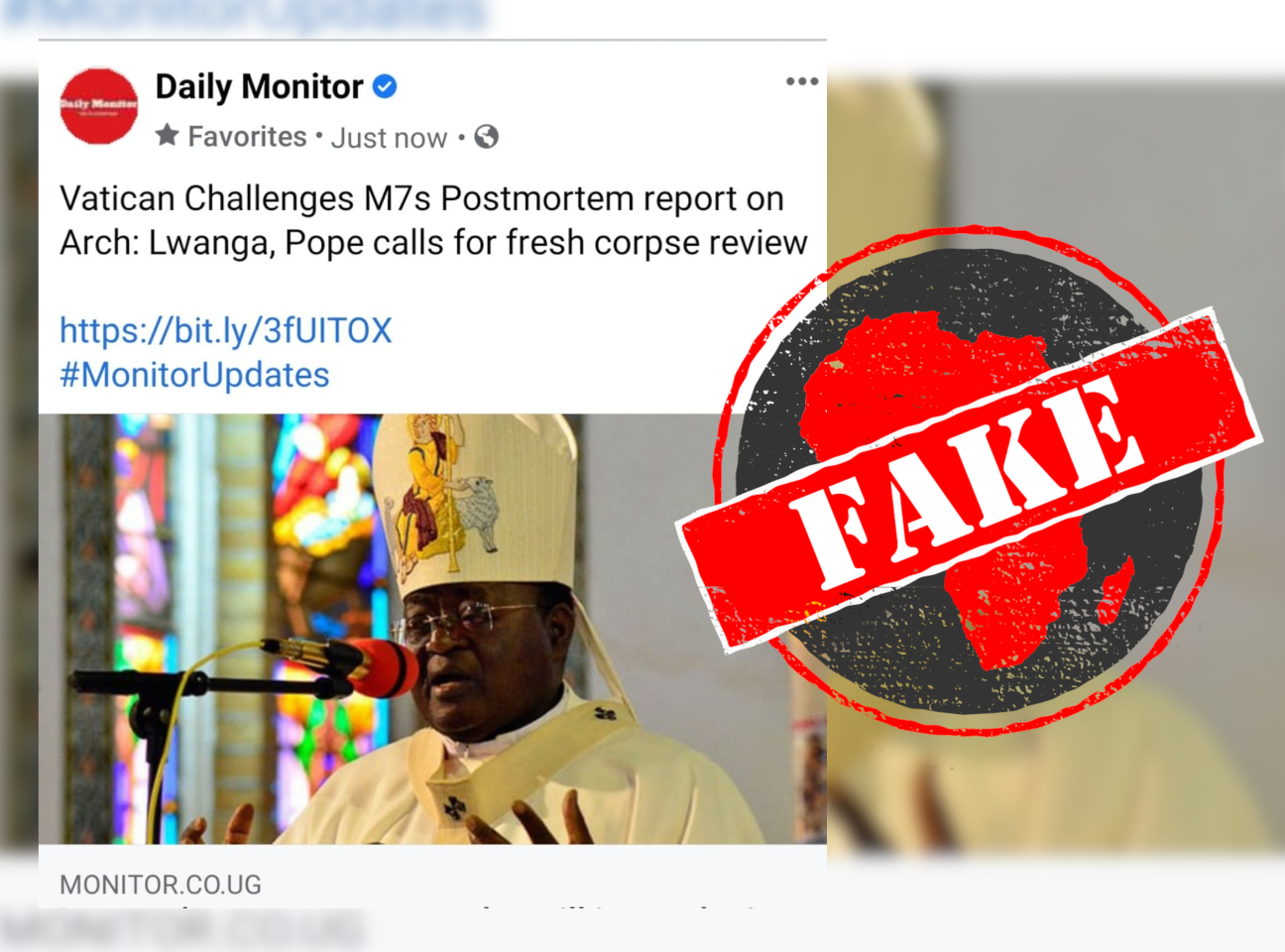Uganda’s Uganda’s Daily Monitor newspaper has reported that the Vatican has challenged the autopsy results of the late Ugandan archbishop Cyprian Lwanga.
At least, that’s according to what seems to be a screenshot of a Facebook post by the newspaper, itself posted on Facebook.
“Vatican challenges M7’s [Museveni's] Postmortem report on Arch:Lwanga,” it reads. “Pope calls for fresh corpse review.” Yoweri Museveni is Uganda’s president.
The archbishop of Kampala was found dead in his room on 3 April 2021, Uganda media outlets reported.
Although local media reported that postmortem results showed he died from a heart disease, there has been speculation on the real cause of his death. Some social media users say they suspect there may be a political hand in it.
But did the Daily Monitor report that the Vatican had challenged the postmortem results, and wanted a review? We checked.

No such reports
There have been no such reports by credible media outlets. And no such statement appears on the Vatican News platform or on Pope Francis’s official Twitter account.
Africa Check also looked through Daily Monitor’s Facebook posts since the archbishop’s death but found no evidence of such a post.
The link “https://bit.ly/3fUITOX”, which appears on the screenshot, points to a previous post by the newspaper leading to a story titled: “Lwanga’s postmortem results still inconclusive.”
‘Fake news’
The newspaper has termed the screenshot “fake news” and asked the public to disregard it.
“Please disregard this and treat it with the contempt it deserves,” it posted.
Republish our content for free
For publishers: what to do if your post is rated false
A fact-checker has rated your Facebook or Instagram post as “false”, “altered”, “partly false” or “missing context”. This could have serious consequences. What do you do?
Click on our guide for the steps you should follow.
Publishers guideAfrica Check teams up with Facebook
Africa Check is a partner in Meta's third-party fact-checking programme to help stop the spread of false information on social media.
The content we rate as “false” will be downgraded on Facebook and Instagram. This means fewer people will see it.
You can also help identify false information on Facebook. This guide explains how.


Add new comment